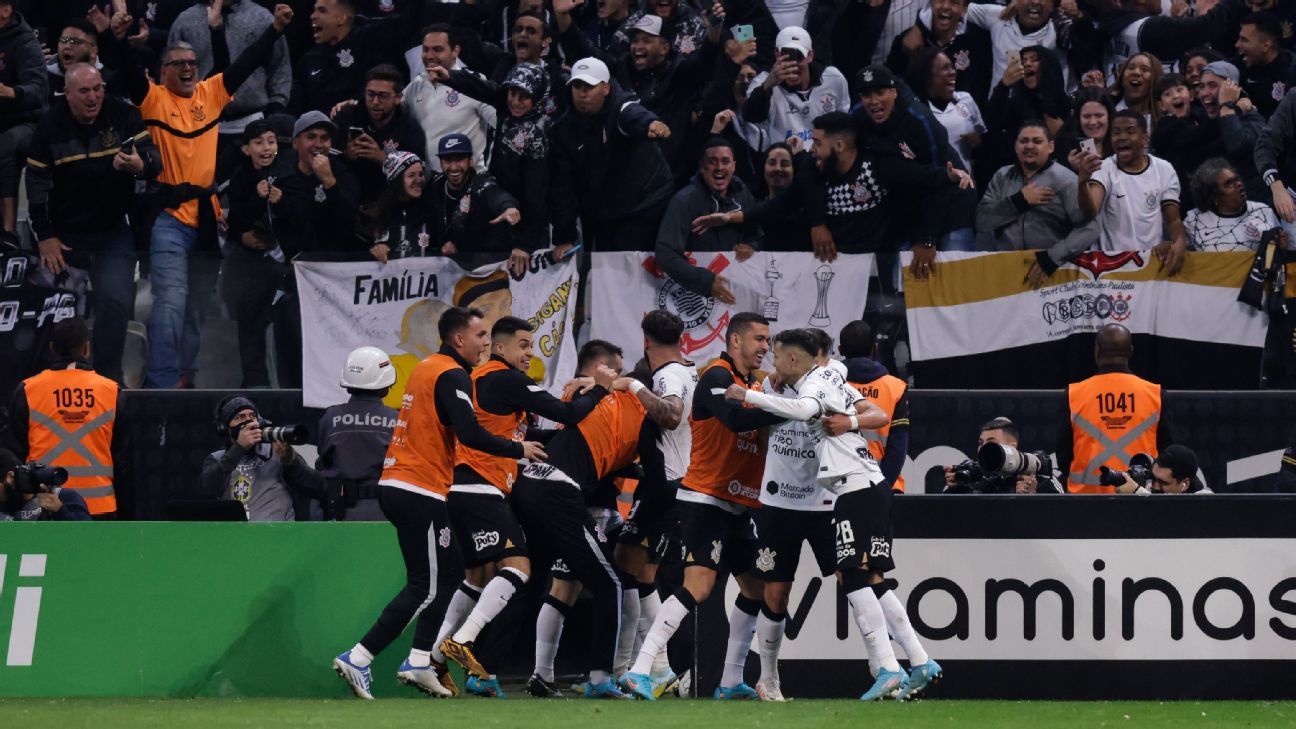Brazil’s two best supported clubs, Flamengo of Rio de Janeiro and Corinthians of Sao Paulo will meet over two legs in the final of the Brazilian Cup in October — and though the competition has only been running since 1989, this is a very big deal.
English fans of a certain age will remember when the FA Cup was the main event of the calendar, the only domestic game broadcast live on TV, full of glamour and glory and with a continental adventure in store for the victors, since one of Europe’s knockout competitions was the Cup Winners Cup. But over the past three decades, with the rise of the Champions League, Europe’s cup competitions have lost a considerable share of their importance.
– Stream on ESPN+: LaLiga, Bundesliga, MLS, more (U.S.)
In South America, though, the opposite seems to be happening, with domestic cup competitions being launched and quickly proving popular. Brazil is probably the best example. There is a powerful financial incentive to do well in the Brazilian Cup. The winners will collect around $11.5 million, and overall will take home more than $14.5 million for their participation in the tournament. That is not quite as much as South America’s Copa Libertadores ($16 million and $23 million, respectively).
But it is much more than the prize money at stake in the Brazilian league, where the winners receive less than $6.5 million. And this amount of money is on the table for a very good reason. The domestic championship has used the league system — all the teams playing against each other home and away — for two decades now. It has undeniable virtues, both sporting (the best team wins) and financial (it keeps all the teams in action throughout the season). But the tradition, the folk memory and the cultural preference is for the sprint rather than the marathon — for the big, winner-takes-all final rather than the grinding campaign.
The Copa do Brasil, as its officially known, fulfils this need for knock-out drama. For a while the tournament did not feature those teams which were taking part in the Libertadores. There was an interesting aspect to this — it allowed the major titles to be spread around different sides. The size of the country means that the history of the Brazilian game was based around local supremacy on the quest to be top dogs at state level. A championship is still played in each of the 27 states that make up Brazil. But these titles have lost much of their shine in a switch in focus from the regional to the national and continental.
There are not enough important titles at stake for all of the big clubs to maintain their giant status — a source of frustration and anger amongst many supporters. A partial solution to this was a domestic cup without the best sides from the previous year, all of whom had qualified for the Libertadores. But those big clubs wield plenty of power. And being barred from the party was too much for them to bear, and so they forced their way back in. The chances of a surprise winner are greatly reduced, as are the opportunities for a smaller team to grow by winning the cup and thereby qualifying for the next season’s Libertadores.
On the other hand, there is plenty to savour when the giants clash in the later stages of the competition — and there was plenty to savour in both of this year’s semifinals. Flamengo’s 4-1 aggregate win over Sao Paulo on Wednesday may look comfortable on paper, and there is indeed a considerable gulf between the two sides. But Sao Paulo could be proud of their displays, and pushed their star studded opponents as hard as anyone could have expected. With better finishing — the key difference in these two clashes — they might have given themselves a chance of making the final.
In front of their own fans, they controlled much of the first leg, but still lost 3-1, undone by moments of brilliance from the famous Flamengo front four. And the story of the second leg was not dissimilar as Flamengo, pushed back but never really scared, won 1-0.
They then had to wait 24 hours to find out if their opponents in the final would be local rivals Fluminense or eventual winners Corinthians. The two had played a rousing 2-2 draw in Rio in the first leg, and the return match was equally enthralling. Under coach Fernando Diniz, Fluminense play a bold, almost anarchic possession-based game, building from the back, often overloading one side and then switching to the other flank.
Corinthians’ Portuguese coach Vitor Perreira has had more experience against this style than his Brazilian counterparts. He worked out when to press Fluminense and force them into uncomfortable forward punts. Outstanding 2018 World Cup veteran Renato Augusto gave Corinthians the lead, and with Fluminense exposed, there were two more goals in second-half stoppage time on Thursday.
To complete the joy on the terraces, the last was an own goal from Felipe Melo, whose recent history with old rivals Palmeiras made him a target for jeers from the Corinthians supporters every time he touched the ball.
And so it is a clash of the titans in the final, Flamengo against Corinthians — two matches whose effects may even show up on the Richter scale, adding still more prestige to the relatively recent tradition of the Brazilian Cup.
